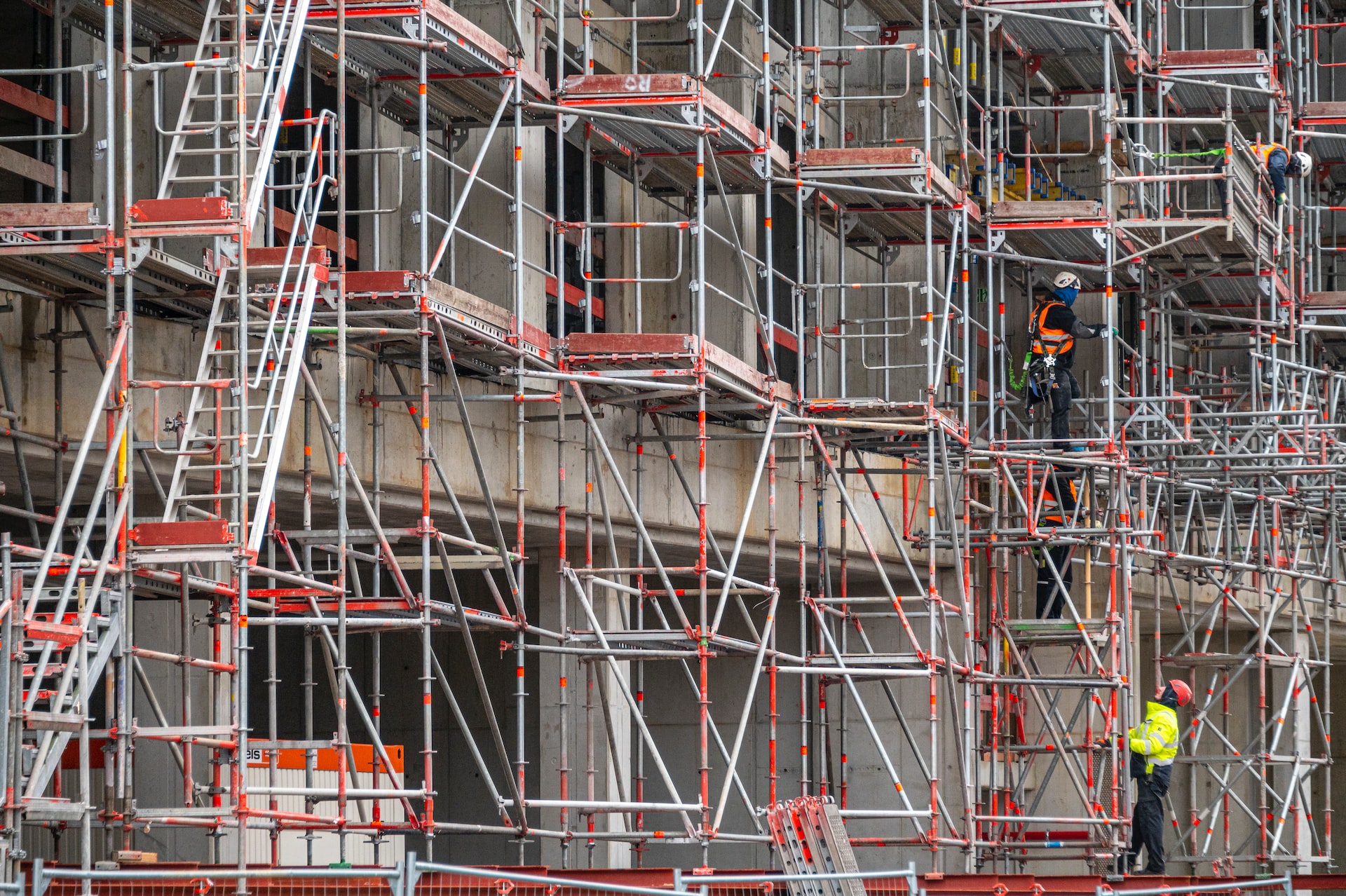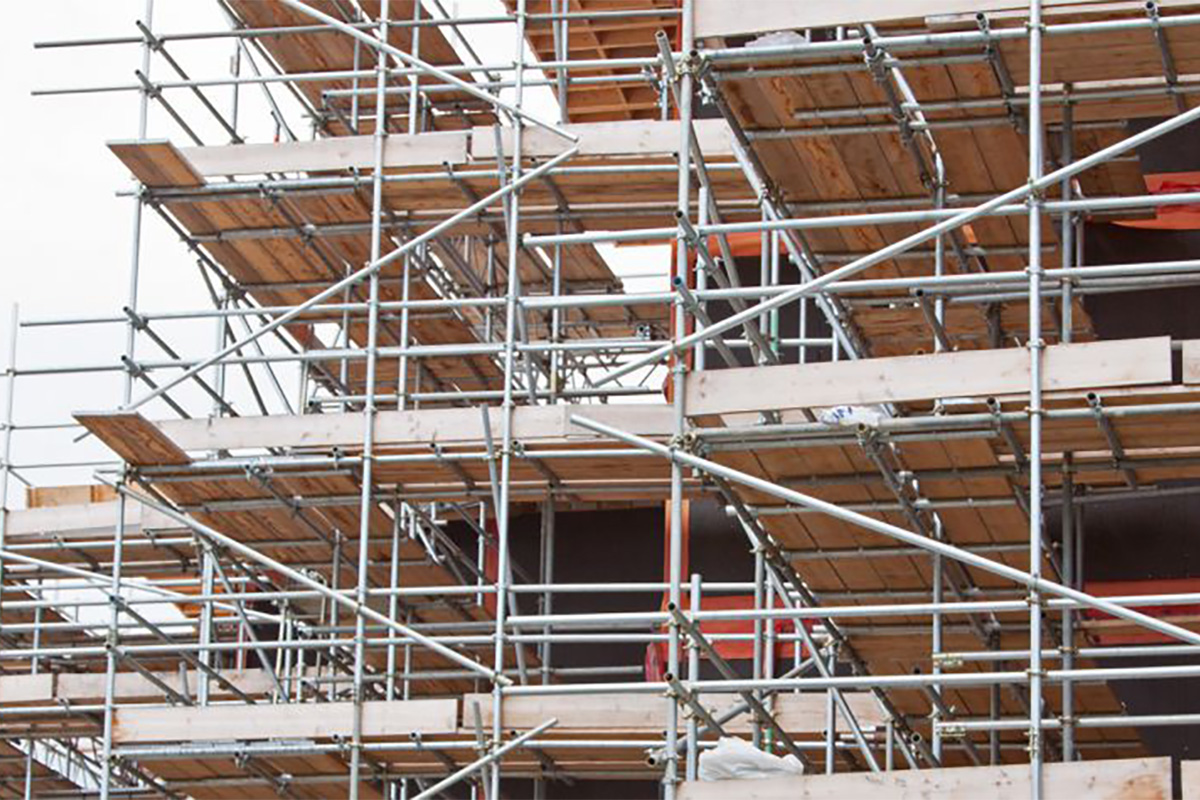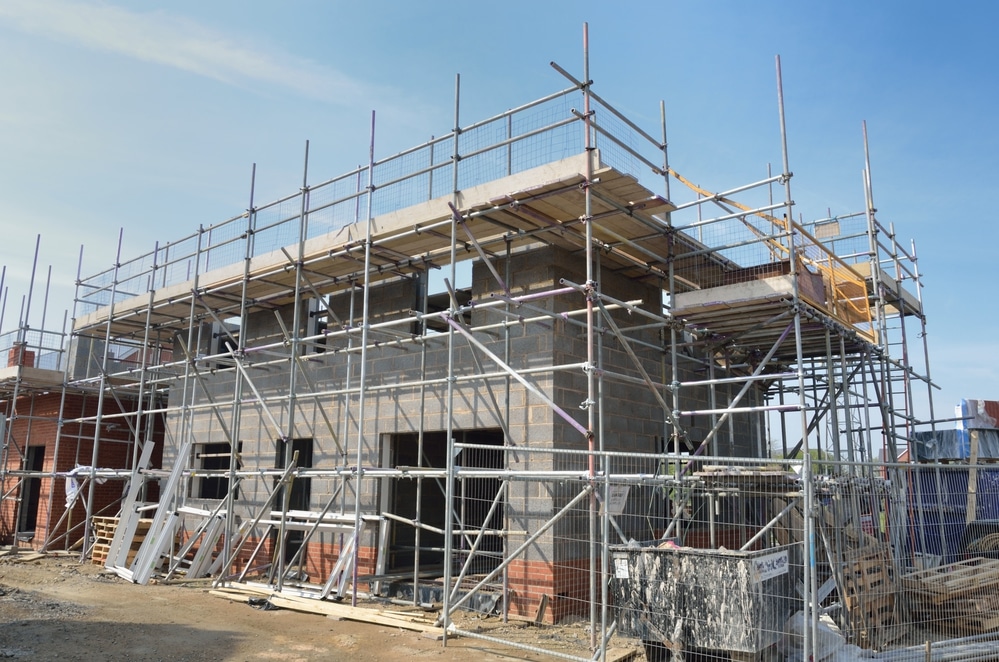Discovering the Different Kinds of Scaffolding Used in Building And Construction Projects
The construction industry relies greatly on different kinds of scaffolding to fulfill particular project needs, each offering distinctive advantages and applications. Traditional frame scaffolding supplies a strong foundation for basic jobs, while put on hold scaffolding is important for job on skyscraper structures.

Typical Structure Scaffolding
Standard framework scaffolding is among the most widely used approaches in the building sector because of its robustness and convenience. This system includes upright and horizontal frames that are constructed to develop a steady platform for products and employees. The major elements consist of upright blog posts, horizontal ledgers, and diagonal braces, which with each other provide a solid framework that can sustain substantial tons.
Among the crucial benefits of typical frame scaffolding is its flexibility to various building and construction projects, ranging from domestic structures to huge commercial structures. The modular layout enables for very easy setting up and disassembly, making it reliable for both temporary and lasting projects. Additionally, the system can be personalized in height and size, fitting different building styles and site problems.
Safety is extremely important in scaffolding applications, and standard framework systems are equipped with guardrails and toe boards to protect against falls and make certain employee defense. Furthermore, routine assessments and adherence to safety policies are vital in preserving the stability of the scaffold. On the whole, conventional structure scaffolding continues to be an essential option in the building market, providing a dependable system for labor and improving total project effectiveness

Suspended Scaffolding
Suspended scaffolding offers an unique service for building and construction projects that require accessibility to raised surfaces, particularly in situations where typical structure scaffolding might be impractical. This type of scaffolding is typically put on hold from the roofing system or top levels of a structure, using a system of ropes, platforms, and sheaves to produce a functioning room that can be gotten used to various heights.
One of the main advantages of suspended scaffolding is its adaptability. It can be conveniently repositioned or lowered to accommodate modifications in construction requirements, making it perfect for jobs such as home window installment, frontage job, and maintenance on skyscraper structures. Additionally, the very little footprint of suspended scaffolding enables much better use ground space in urban atmospheres, where area is usually restricted.
Safety is a critical consideration in the usage of put on hold scaffolding. Correct rigging and anchoring systems have to be used to make sure stability and protect against mishaps. Operators should additionally be learnt the secure use this tools. Generally, put on hold scaffolding offers a reliable and reliable service for accessing hard-to-reach areas in various building and construction scenarios, improving both efficiency and safety on website.
System Scaffolding
System scaffolding, usually considered as a modern option in the scaffolding industry, is composed of pre-engineered components that can be quickly assembled and adjusted for various building projects. Scaffolding. This kind of scaffolding is defined by its modular style, which enables flexibility and performance on job websites, suiting architectural demands and various heights
Normally made from high-strength steel or light weight aluminum, system scaffolding uses enhanced toughness and stability. The components include vertical messages, horizontal journals, and diagonal braces, which adjoin securely, ensuring a robust structure. The design often integrates standard installations, simplifying assembly and disassembly procedures, thus reducing labor time and expenses.

Rolling Scaffolding
Rolling scaffolding is a versatile option to conventional fixed scaffolding, created for mobility and ease of use on building and construction sites. This type of scaffolding consists of a platform sustained by frameworks with wheels, permitting employees to conveniently relocate it as required. The mobility feature significantly enhances efficiency, as it lessens downtime connected with constructing and dismantling taken care of scaffolding.
Typically created from light-weight materials such as aluminum or steel, rolling scaffolding uses a durable yet portable option for tasks requiring regular repositioning - Scaffolding. It is specifically useful in tasks such as painting, drywall installation, and electric job, scaffolder day rate where access to various heights and areas is needed
Safety and security is critical in rolling scaffolding style, with features such as securing great post to read wheels to avoid unplanned motion when being used, and guardrails to protect workers from falls. Furthermore, many designs are flexible in elevation, accommodating various job demands.
Cantilever Scaffolding

The style of cantilever scaffolding commonly entails utilizing braces or arms anchored to a building or framework, enabling the system to extend outside securely. Safety read this post here is extremely important; thus, these scaffolds should be crafted to endure numerous loads and environmental conditions. Normal assessment and maintenance are necessary to make certain structural stability and worker security.
Cantilever scaffolding is preferred for its versatility and effective usage of space, making it a prominent choice in metropolitan atmospheres where space constraints are typical. Furthermore, it facilitates easier accessibility to high altitudes, inevitably adding to the total performance of building projects. Similar to all scaffolding kinds, correct training and adherence to security requirements are important for workers using cantilever scaffolding.
Final Thought
Standard structure scaffolding gives stability, while put on hold scaffolding uses flexibility for elevated tasks. System scaffolding helps with fast assembly, and rolling scaffolding boosts mobility for differing work settings.
Conventional structure scaffolding provides a sturdy structure for general tasks, while suspended scaffolding is essential for job on high-rise structures.Moving scaffolding is a versatile alternative to traditional fixed scaffolding, developed for wheelchair and ease of use on building and construction sites. As with all scaffolding types, proper training and adherence to safety criteria are vital for employees making use of cantilever scaffolding.
Conventional structure scaffolding offers stability, while put on hold scaffolding uses adaptability for raised tasks. System scaffolding facilitates fast setting up, and rolling scaffolding boosts movement for differing job atmospheres.
Comments on “Affordable Domestic Scaffolding for Every Home Renovation Project”